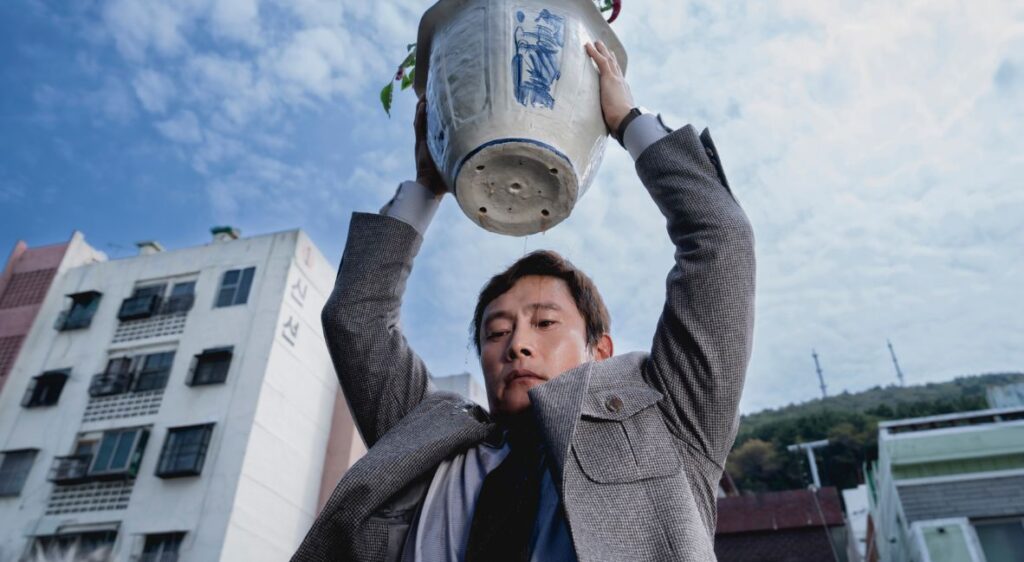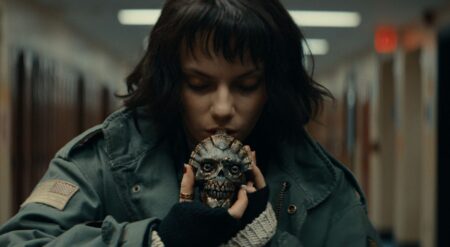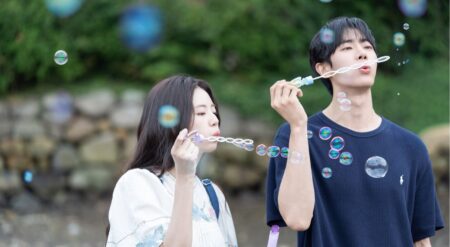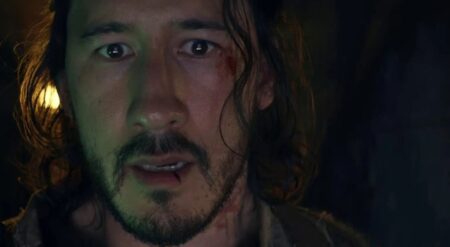“You know what, I’ve got it all,” declares Man-soo (Lee Byung Hun), as he embraces his wife, two kids, and two dogs at the start of No Other Choice. Twenty-five years of devoted work have not only afforded him a picturesque forest-encircled home but the honor of being Solar Paper’s pulp man of the year in 2019. Yet, as this opening image of hard-won domestic bliss crackles with visual intricacy and orchestral grace, we come to realize that it won’t last.
The latest from Park Chan-wook, the twisting, razor-sharp thriller No Other Choice—adapted from Donald E. Westlake’s novel The Ax—makes it painfully clear that as bottom lines get thinner and corporate overlords greedier, our idea of an “honest living” is already a relic of the past. It’s a process already streamlined by an automated factory. So, in a free market where decency and dedication are low-value currencies, there’s little left to do but follow Man-soo and invest in darker qualities.
Forever a master of satire, Park intricately carves a bleak, painterly vision of late-stage capitalism. Unfolding with barbed, acerbic precision, No Other Choice slyly dissects the ouroboric state of corporate and workplace politics to deliver a layered portrait of our modern dog-eat-dog economy.
Park Chan-wook delivers a biting tragicomedy.
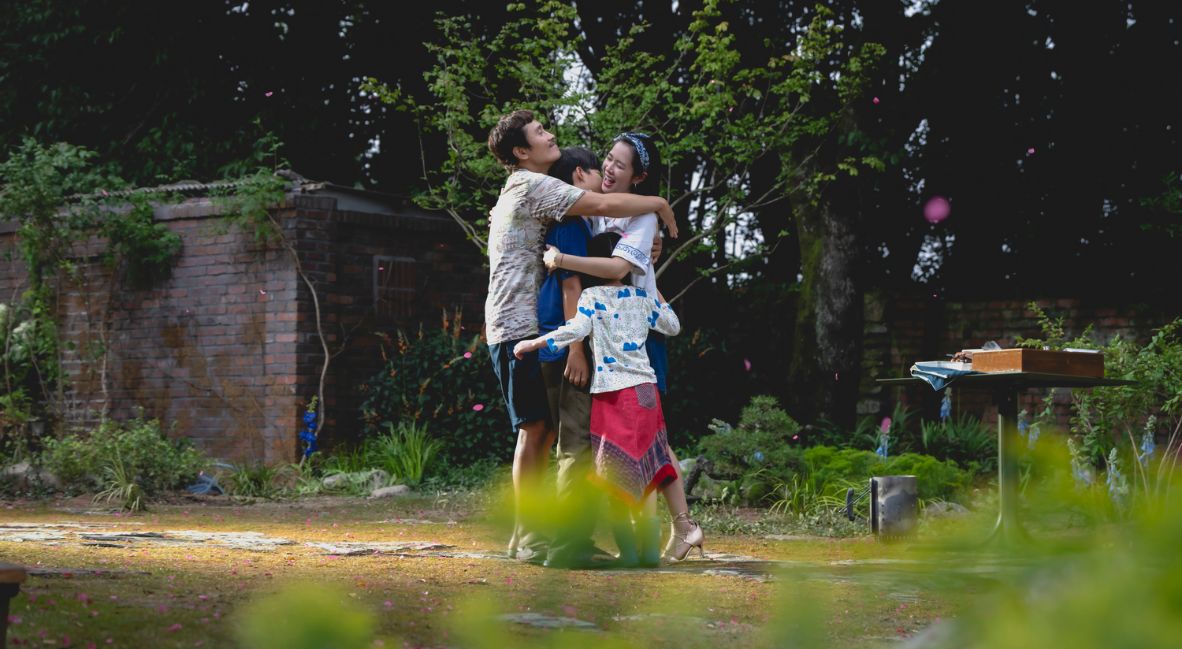
As it slinks its way through a hysterical set of moral quandaries and errors, No Other Choice glistens off the screen as a grand, darkly comic tragedy. One that not only affixes us to the urgency of its dire message but also understands there’s little to do but laugh in a rapidly subsuming world.
After suddenly being axed from his long-held position at Solar Paper, Man-soo goes into freefall, struggling to land a new job. He soon falls behind on mortgage payments, and his wife, Me-ri (Son Ye-jin), contends they put their house up for sale in addition to cutting back on their accustomed amenities.
Not willing to surrender his dream life, he banks everything on a coveted position with Moon Paper. But other candidates match or even surpass his qualifications. So, he takes the titular mantra to heart and concocts a devilish plan. He invents a fake paper company to lure his competition in, and then, one by one, slowly dispatches them. After all, what’s a better way to prove your initiative to the biggest and brightest corporations?
No Other Choice exemplifies the beauty of contrasts.
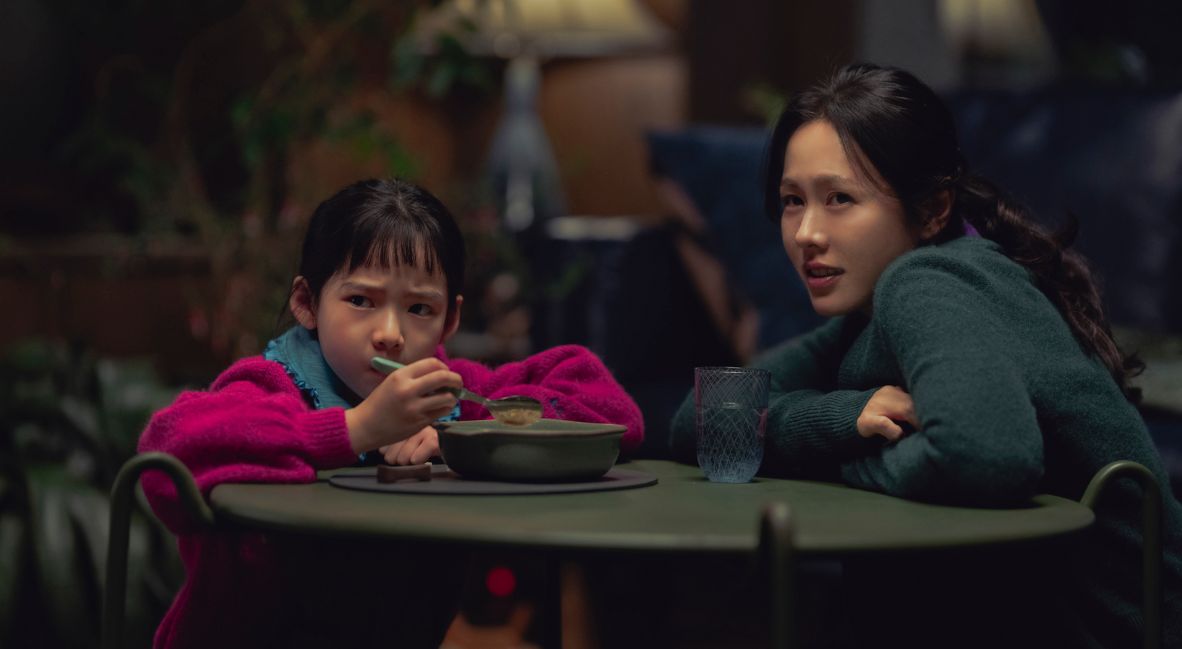
It’s a bumbling setup that beautifully clashes with the clean, crisp cinematography. Along with director of photography, Kim Woo-hyung, Park captures a chaotic, frenzied world with strict order. Slicing symmetries, cascading crane compositions, and lush overlapping transitions pervade, creating a rich, idyllic canvas onto which man’s worst impulses are laid bare.
As No Other Choice continues down its slippery slope of blundering bloodshed, it comes to mimic the effect of a terrarium. Park constructs an ornate container housing not only stunning vistas and locales, but also insects vying for position in a hierarchy far out of their control.
No Other Choice luxuriates in a ceaseless flurry of masterfully orchestrated sequences. From drawing twisted chuckles in Man-soo selecting a flowerpot to drop on his rival’s head, to a chewed-out, crumbling leaf inundated with ladybugs, Park’s film abounds in bleak, biting metaphors. It’s the mark of a cold, calculated film that’s as attuned to its aesthetic as it is its sense of visual comedy. It brilliantly coalesces in a bracing, hilarious set-piece that sees Man-soo’s first kill go terribly awry, as deafening ’80s rock drowns out the clumsy proceedings.
Lee Byung Hun delivers a superb performance.
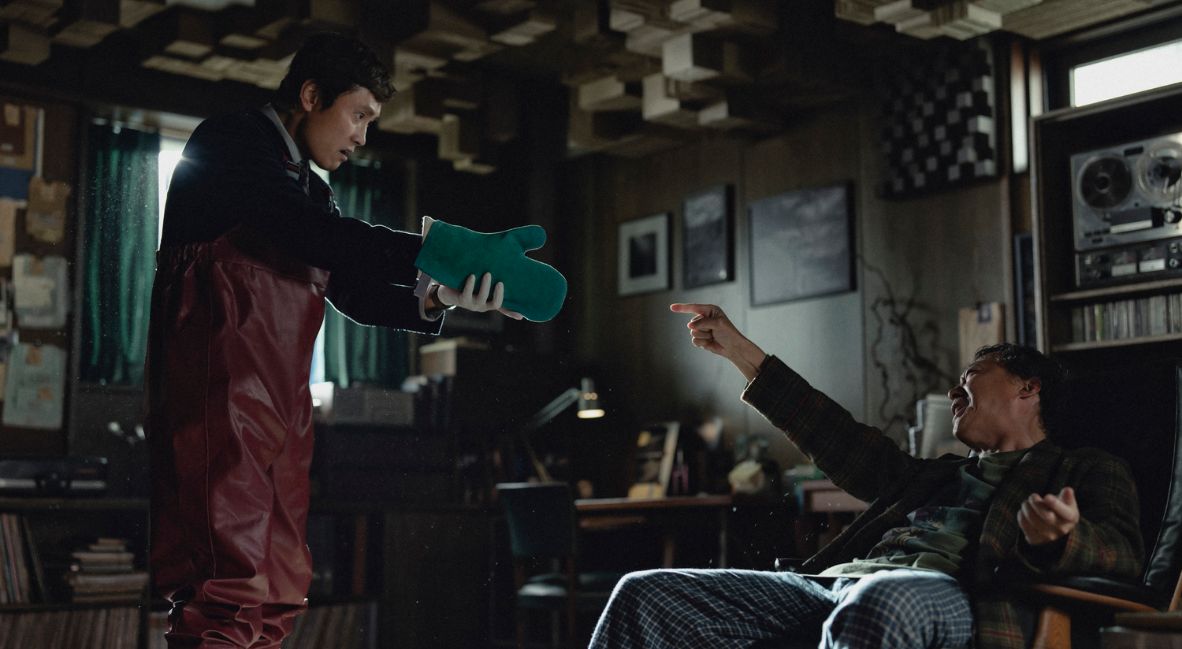
As Park entwines detailed character motivations and motifs, No Other Choice begins to turn its textured lens inward, inviting audiences to confront the thin, fragile layers separating them from such barbarity. At the centre of this effect lies Lee Byung Hun’s super-articulated performance. It becomes a perverse treat to watch him wince, moan, and curdle at the thought of following through on each heinous act.
While Lee’s turn is undeniably theatrical, it’s also incredibly lived-in, with inflections both subtle and sizable conjuring a comprehensive persona. Son Ye-jin’s Me-ri is also a humorous highlight that’s never relegated to playing second fiddle, routinely upping the stakes with a loveable yet tragic disposition.
No Other Choice sees Park Chan-wook operating at another artistic high, consistently finding method in the madness. Despite how comical its fabric may be, it never relinquishes a tight grip on a prescient social satire. As our enterprising world continues to mechanize, downsize, and automize, human agency is little more than a bearish stock. So, if everything comes down to an unfeeling algorithm, there’s no other choice but to fudge the numbers and play dirty. Perhaps tricking the corporate machine is the only way to retain some semblance of dignity in a world where humanity is a growing inconvenience.
No Other Choice played as part of the 2025 Toronto International Film Festival.
No Other Choice
-
Rating - 9/109/10
TL;DR
No Other Choice sees Park Chan-wook operating at another artistic high, consistently finding method in the madness. Despite how comical its fabric may be, it never relinquishes a tight grip on a prescient social satire.

